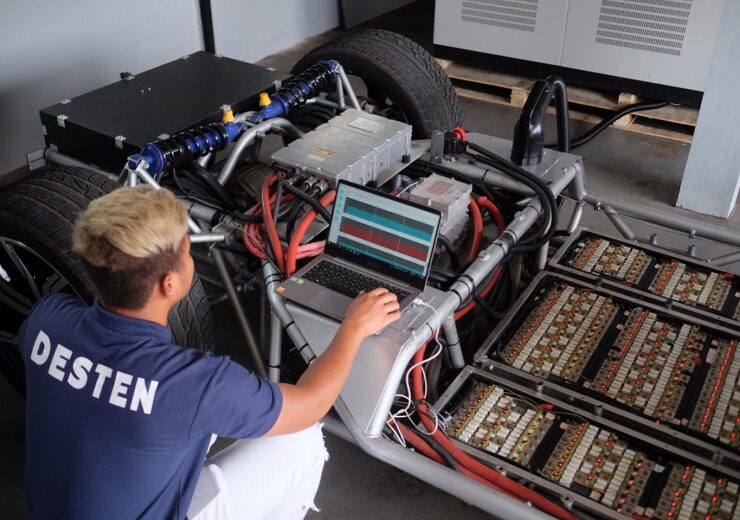The technology is designed to charge a DESTEN battery-powered car to achieve 500km of range in less than five minutes

DESTEN’s ultra-fast charger is packed with 900kW of power. (Credit: DESTEN Group)
DESTEN has unveiled an ultrafast charging solution for electric vehicles (EVs) in Indonesia, to address major challenges in the adoption of battery-powered vehicles.
Introduced alongside a DESTEN designed and engineered electric car, the ultrafast charging technology enables 0% to 80% state of charge in four minutes and 40 seconds.
DESTEN intends to showcase the technology in a global roadshow beginning in Asia and later in the Middle East, Europe, and North America.
Packed with 900kW of power, the ultrafast charger is designed to charge a DESTEN battery-powered car to achieve 500km of range in less than five minutes.
DESTEN Group CEO Siamak Kia said: “Five-minute charging can make electric cars far more appealing than they are today as we don’t require a change in driving behaviours, leveraging the same publicly available petrol station infrastructures.
“Soon you will be able to purchase electric cars with DESTEN batteries inside, you will not have to wait to charge your car at a charging station any longer than it takes you to fuel your combustion car today.”
The company has developed the charging solution with novel chemical formulations produced on a custom manufacturing line.
According to DESTEN, breakthrough discoveries in materials and cell structures have facilitated the development of ultra-fast charging capability.
The battery is designed to achieve 3,000 cycles and over 1.5 million km of total driving range.
With a high thermal stability feature, DESTEN batteries are said to remain cool throughout the operation. In addition, they do not require water cooling, resulting in energy and cost savings.
DESTEN’s battery cell technology also has a smaller carbon footprint, as it is mainly produced from renewable energy sources.
Kia said: “DESTEN and Indonesia’s government have common goals to electrify mobility and integrate more sustainable energy projects into the existing grid.
“With the shift towards renewable energy in Indonesia and huge economic potential from the development of the entire battery value chain, Indonesia will strengthen its position as a global hub in energy innovation and one of the leaders of the international sustainability movement.”


